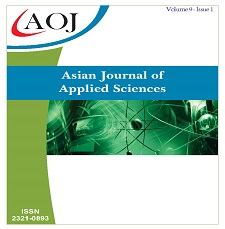Car Engine Oil: Investigation of Function and Related Challenges, and Provision of Environmental Solutions
DOI:
https://doi.org/10.24203/ajas.v9i1.6486Keywords:
Engine oil, Viscosity, Burning oil, Plant-based oil, LubricationAbstract
In this paper, in order to solve challenges in the field of energy and fuel using a fully practical approach, types of engine oils and advantages of each over the other are discussed. A suitable car engine oil and its reasons are addressed. The viscosity of the engine oil is studied. A suitable car engine oil for cold and tropical regions of Iran is introduced. The standard classification of engine and gear oils in terms of viscosity is another topic discussed in this paper. Burning oil of Iranian cars, its reasons, identification methods and reduction strategies in accordance with domestic standards are described. Finally, plant-based engine oils, their applications, advantages and disadvantages, native challenges in this field and its complementary topics of the environmental aspect are provided in the present study.
References
A. R. Masoudi, Z. Kouhi, “Four Seasons Engine Oils and General Evaluation of These Oils in the Iranian Market (In Persian)”, 2th Condition Monitoring & Fault Diagnosis Conference, Tehran, Iran, February 24-25,¬ CMFD02_038., 2008.
I. Arefian, H. Asady, M. R. Monazam Esmaeilpour, Z. Zolghadr, Y. Zarif, “Investigating Impact of Motor Oil Quality on Vehicles Engine Induced Noise Level (In Persian)”, Journal of Health and Safety at Work, vol. 5, no. 3, pp. 21-28, 2015.
R. Hesampour, M. Hasani, K. Heidarbeigi, “Evaluation of Oil Viscosity Behavior in Different Engine Functions (In Persian)”, 2th National Conference on Mechanization and New Technologies in Agriculture, Ahvaz, Iran, May 11-12,¬ ¬NCAMNT02_078, 2016.
J. G. Wills, “Lubrication Fundamentals”, M. Dekker, 1980.
D. M. Pirro, M. Webster, E. Daschner, “Lubrication Fundamentals, Revised and Expanded”, CRC Press, 2017.
S. Mohajeri, B. Espidkar, F. Harsaj, “Investigation of Fuel Consumption Reduction in Vehicles Using Fuzzy Multi-Criteria Decision Making Approaches (In Persian)”, Journal of Science and Engineering Elites, vol. 3, no. 5, pp. 50-57, 2018.
H. Roshan Ravesh, H. Sadrnia, M. Khojastehpour, “Ensurement of Accuracy of New Engine Oil before Use through Oil Analysis (In Persian)”, 4th National Conference on Mechanical and Electrical Engineering Science and Technology of Iran, Tehran, Iran, March 11,¬ ¬DMECONF04_013, 2019.
H. R. Eskandari, R. Tavasoli, “Effect of Vegetable Engine Oil on Reducing Fuel Consumption and Environmental Hazards (In Persian)”, National Conference Celebrating Successful Managers in the Year of Resistance Economy, Action and Practice, Tehran, Iran, February 16, EMOGHAVEMAT01_004, 2017.
S. Salmani, S. S. Ashraf Talesh, “Review of Biodiesel Production Processes and Study of Effective Parameters (In Persian)”, 5th National Conference on New Research in Chemistry and Chemical Engineering, Tehran Iran, January 24, ¬IRCCE05_077, 2019.
Downloads
Published
Issue
Section
License
Copyright (c) 2021 Atefeh Hasan-Zadeh, Mohammad Poshtiban

This work is licensed under a Creative Commons Attribution-NonCommercial 4.0 International License.
Copyright © The Author(s). This article is published under the Creative Commons Attribution License (CC BY 4.0), which permits unrestricted use, distribution, and reproduction in any medium, provided the original work is properly cited.


